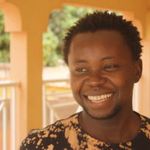

A native of Koumra in southern Chad, Migo Natolban is a prominent figure in the African diaspora in Canada. Since arriving in Canada twenty years ago, he has established himself as a broadcaster, writer, media entrepreneur and founder of the web radio station Réseau des Citoyens (Citizen Network). Réseau des Citoyens was created as a platform for free expression in response to the clampdown on Chadian media. Through this initiative, Migo amplifies the voices of the voiceless, fosters citizen debate and advocates for transparency in public governance. In a short time, Réseau des Citoyens has emerged as one of Chad’s leading media outlets.
Migo Natolban is a controversial figure familiar to most Chadian internet users. Admired for his courage yet often criticised for his outspoken views, he is best known for his opposition to late President Idriss Déby’s regime and his consistent denunciation of injustice. “My role is not to please everyone, but to take responsibility for my actions. I am a free man, steadfast in my principles, but constantly evolving in my methods,” he asserts. His interventions have drawn both criticism and threats in a context where freedom of expression remains fragile.
Some observers believe that Migo has softened his stance since Mahamat Idriss Déby came to power; a claim he firmly rejects: “That’s a simplistic interpretation. My commitment has never been against an individual, but against a system.” He emphasises that his activism remains unwavering and is driven by a pursuit of social justice. His goal is to help build inclusive societies where citizens, especially young people, can express themselves freely and live with dignity.
Migo Natolban views migration as a fundamental human right. For him, leaving one’s country is not a defeat, but a quest for dignity. He strongly condemns the conditions that force young Africans to flee their homelands, insisting that “Africa must become a choice, not a constraint.” He advocates for sweeping reforms in education, employment and governance, so that young people no longer feel compelled to leave due to a lack of opportunity.
To Migo, immigration is not an end in itself. He offers this advice to those seeking to settle in Canada: “You must go with a clear plan, a willingness to learn and integrate, and, above all, remain connected to your continent.” He sees Canada as a potential springboard, but believes the real challenge lies in using that experience to contribute meaningfully to Africa’s development.
Migo Natolban has not limited his efforts to mere criticism. For several years, he has been working on an ambitious initiative: the Cité de la Diaspora, planned for N’Djamena. This residential and economic district is designed to encourage the return of Chadians from the diaspora, stimulate investment and create jobs. It will feature schools, cultural centres, shops and modern housing built to international standards. The project reflects Migo’s determination to move from words to action.
At the same time, Migo is preparing for the 2025 release of his book, Decoding the Future: How AI Is Shaping the Future of Education and Employment in Africa. In it, he explores the profound impact of artificial intelligence on African education systems and the labour market. He also proposes ways for the continent to anticipate and harness these transformations. The book aims to spark strategic thinking on technological change and its far-reaching implications for Africa.
Despite the obstacles, Migo remains hopeful for Chad and the African continent as a whole. He firmly believes in its potential but only if deep-rooted structural issues in education, employment and security are addressed. Until these challenges are resolved, he warns, young people will continue to flee in search of better prospects. For Migo, lasting change must come through civic engagement and the active involvement of diaspora communities in the development of their own countries of origin.
Migo Natolban is a socially committed activist and media professional whose career uniquely blends activism, journalism and entrepreneurship. He holds significant influence within the Chadian diaspora and beyond. Yet his outspoken stance on justice and freedom of expression has placed him at the heart of political and social controversy in an already tense national landscape.
Recently Published
Subscribe to our newsletter!
Quick Links


